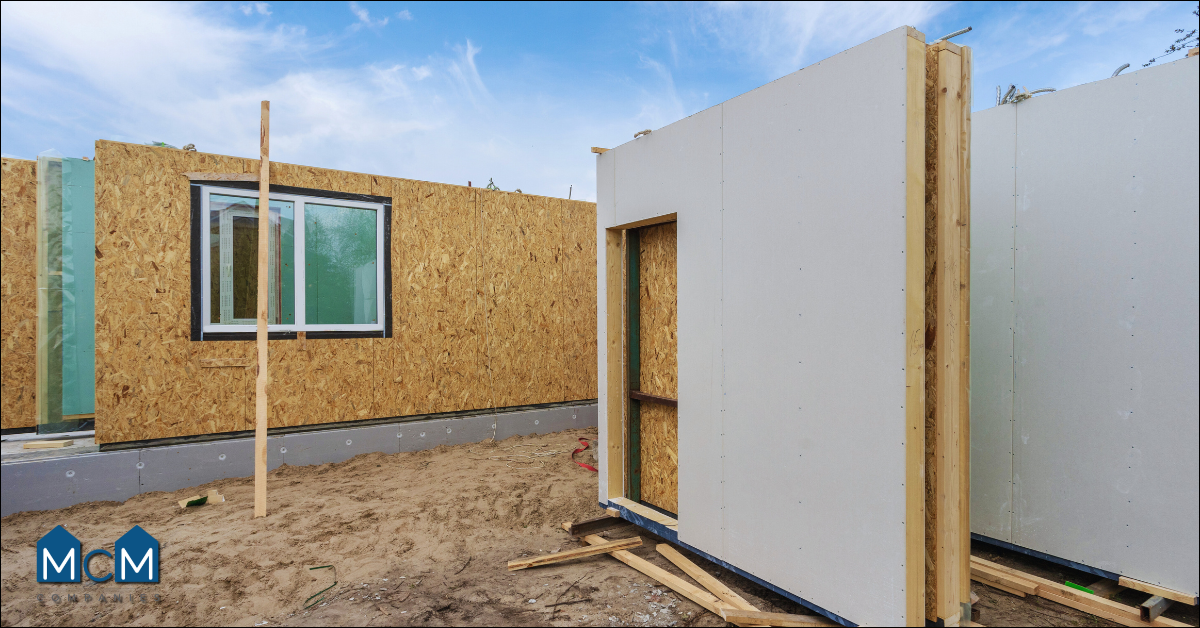Why Modular Homes are Appreciating and Accelerating Homeownership

For decades, the perception of prefabricated housing, which was often lumped together under the outdated term "mobile homes,” was one of declining value. However, the modern modular home, built to the same strict state and local building codes as site-built houses, has fundamentally changed the conversation.
Contrary to the perception that prefabricated housing is a depreciating asset, new data confirm that a modular home on owned land is a sound financial investment. It is appreciating at rates nearly identical to traditional stick-built homes, offering a secure and confident path to homeownership.
Combined with its speed and cost efficiency, modular construction is proving to be both a smart investment for today’s homeowners and a scalable answer to the nation’s housing affordability challenge.
The Appreciation Advantage
The primary barrier to considering a modular home as a wealth-building asset has always been the myth of depreciation. Recent, comprehensive data from the Federal Housing Finance Agency (FHFA) and analysis by the Urban Institute, however, thoroughly debunks this misconception.
Appreciation Rates
Between 2000 and 2024, the appreciation rate of manufactured homes on owned land was nearly indistinguishable from that of traditional site-built homes. Site-built homes appreciated by approximately 212.6%, while manufactured homes followed closely at 211.8%. This equates to an annual appreciation rate of about 5% for both housing types.
Crucially, the data shows that since 2014, manufactured homes have frequently outpaced traditional homes, showing more substantial year-over-year price increases in most quarters. This strong performance, recognized by appraisers who evaluate modular homes using the same criteria as site-built homes, confirms that modern modular construction holds its value and can be a legitimate path to building household wealth.
Land Ownership
The key factor that determines a modular home's financial viability is ownership of the land. When the homeowner owns the land, the home benefits from the appreciation of both the structure and the property beneath it. This mirrors the dynamic of a traditional house and allows the investment to appreciate fully.
However, when a modular home is placed on leased land, such as in a land-lease or community setting, the equation changes. While the house itself retains structural quality and can hold its value for years, it generally does not appreciate in the same way, since the homeowner isn’t building equity in the underlying land. Meanwhile, rising land rents can erode overall returns.
Building Value Through Speed and Efficiency
In today’s market of high interest rates and rising construction costs, modular construction protects value by reducing both time and financial risk. Faster build times mean homeowners start building equity sooner, while cost control prevents budget overruns that can erode return on investment.
Faster Construction Protects Long-Term Worth
Modular homes can be completed in as little as 4 to 7 months, compared to 8 to 10 months for a traditional site-built house. This shorter timeline lowers construction loan interest, minimizes holding costs, and reduces exposure to market fluctuations during the build. The result is a home that reaches completion and begins appreciating more quickly.
Cost Control Strengthens Investment Potential
Factory-based construction minimizes waste, streamlines labor, and benefits from bulk material purchasing. These efficiencies can cut overall build costs by up to 20%, while maintaining consistent quality through precision manufacturing. Lower construction costs and higher quality both contribute to stronger value retention over time.
Modern Features
Modern modular homes are not just structurally sound; they’re also designed with the features that today's buyers demand, which further boosts their resale potential. These modern features create an exciting and contemporary living experience that potential homebuyers can look forward to.
1. Energy Efficiency and Sustainability
Due to the precision of factory construction and superior sealing, modular homes are often inherently more energy-efficient than their traditional counterparts. They are designed to integrate high-performance insulation, energy-efficient windows, and high-efficiency HVAC systems.
Many modular homes meet or exceed standards like ENERGY STAR or LEED, which can reduce utility bills by up to 50%. These long-term cost savings and the reduced environmental footprint are highly attractive to contemporary homebuyers, directly enhancing the property's resale value.
2. Smart Home Integration
The integration of smart home technology is no longer a luxury but a sought-after feature that increases market appeal. Buyers are willing to pay more for homes with integrated smart systems. For modular homes, this technology can be seamlessly built into the structure during the factory phase.
Key value-adding features include smart thermostats and lighting, which maximize energy efficiency and offer convenience. There are integrated security systems that are professionally installed to enhance safety and peace of mind. Ultimately, whole-home automation with centralized control for lighting, climate, and security provides a modern, connected living experience.
A well-maintained modular home on owned land, featuring modern energy efficiency and smart technology, is an asset positioned for continued appreciation and substantial resale value. It represents a forward-thinking, cost-effective, and financially sound approach to homeownership in the 21st century.
Your Foundation for Future Equity
The evidence is clear: the modern modular home, particularly when situated on owned land, is a powerful financial tool that offers appreciation rates comparable to those of traditional construction. By merging time-tested building standards with the speed and cost efficiency of factory-built precision, modular construction delivers a superior, high-value product.
This model offers a straightforward path to equity, advanced technology, and lower utility costs. To realize the full wealth-building potential of this innovative housing solution, consider starting your journey with MCM Communities, where quality, efficiency, and appreciation potential are built into every home.
.svg)